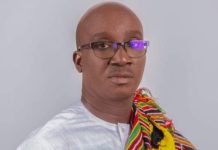
By Chimezie Godfrey
President Mohammadu Buhari has been urged to prioritize the adoption of protection of civilians’ policy in the country.
The Civil Society Legislative Advocacy Centre (CISLAC) in collaboration with the Centre for Civilians in Conflict (CIVIC) on Monday in Abuja reiterated the call on Buhari to assent to the bill on the protection of civilians that is still with the National Assembly.
The Executive Director, Civil Society Legislative Advocacy Centre (CISLAC), Auwal Rafsanjani noted that human security is the most prevalent within the global community.
According to him, CISLAC in collaboration with CIVIC with the support from European Union (EU) has worked collectively to advocate for the institutionalization of an accountable system that is vibrant, robust and effective.
He said,”Our belief is that good protection regime within the security sector is a key enabler for wider progress.
“Accountability in security and justice provision is related to protection from abuses, the ability for citizens to seek redress and hold providers accountable, and to the responsiveness and accessibility of provision itself. Accountability helps build the confidence and legitimacy needed to overcome societal mistrust.
“Let me also use this medium to emphasise that since the implementation of the project, CISLAC has worked closely with various Ministries, Department and Agencies of government as well as CSOs at state and national level. Defence agencies and media in delivering on the project outcomes.
“This has led to the formation of various policy shifts. Why is Protection of Civilian important?To be effective, security institutions must be politically accountable to the legitimate authorities of the state and to the democratically-elected representatives of the people through external oversight.
“In formulating national security policies and priorities, the protection of civilian and civilian harm mitigation are also very fundamental.
“Protection of civilian allows for adequate accountability mechanism that pushes external agencies to regulate the use of discretionary powers, such as whether the use of force are applied in compliance with national and international law. Ensure that the regime that promotes civilian is established.”
On the Principles of Protection of Civilian and Civilian Harm Mitigation, he stressed that effective protection comes from a holistic balance with issues of governance, accountability, and integrity.
Rafsanjani pointed out that protection within the security forces is key to generating a coherent force with the will to face major security challenges and to being able to deal with breaches of conduct at the point of breach.
According to him, focusing on security alone comes at the expense of accountability that cannot keep up with new equipment, systems, and practices.
He however, said to avoid the pitfalls of civilian harm, there is an urgent need to adopt a policy regime that emphasizes on train and equip measures, a thorough and joint assessment on capacity and integrity of forces can help manage any potential harm in any theatre of operations.
The Country Director, CIVIC, Dr Benson Olugbuo said CIVIC driven by a passion to save and protect civilians through engagement with relevant armed actors, has developed and implemented solutions to prevent, mitigate and respond to civilian harm and in advancement of the vision of a world in which no civilian is harmed in conflict.
He pointed out that in Nigeria, CIVIC have been working to promote these by engaging with key military institutions to influence their curriculum and reinforce the POC/CHM mindset.
“CIVIC has successfully trained over 2387 military personnel at training institutions and deployment centres, trained 663 deployed troops within Brigades in the NE, facilitated training of trainers for 93 military instructors, facilitated 19 meaningful dialogues and town hall meetings between the military, community militias, stakeholders and civilians that has further strengthened trust, coordination and led to an inclusive community driven protection of civilian`s strategies.
“In addition, CIVIC has also trained communities in the northeast on the protection of civilian`s and empowered them to the point of establishing 6 functional community protection committees (CPCs), made up of three hundred (300) community members drawn from across host communities and camps that continue to facilitate appropriate engagement with key security agencies to advocate for their protection needs.
“CIVIC has also trained 603 community militias including vigilantes, CJTF & Hunters on Protection of civilian`s principles to provide them with the basic knowledge on understanding civilian centred protection.
“Above and beyond this, is the several advocacy engagements with the push for the adoption of a Protection of civilians’ policy and bill that CIVIC has been working on with many of you in this room as its advocates,” he said.
Olugbuo disclosed that the policy when adopted, Nigeria will be the first country in Africa with such a policy that seeks to further safeguard its citizens from harm.
He pointed out that threats to civilians during conflict manifest in many forms.
He further noted that the the concept of POC seeks to address the threats by mitigating harm, facilitating access to basic needs and contributing to establishing a safe and secure environment.
“Our ask of you:As media partners and custodians of a very strong advocacy instrument, CIVIC urges you to explore mechanisms that will promote the adoption of the PoC policy and also engage in community education bringing to light the importance of civilian protection, putting your full weight behind the drive towards the actualization of policies, laws and programs that will ensure a system where civilian protection is at its core.
“Continue to recognize and report efforts by security agencies and government that have sucessfully protected civilians.
“As we go on this campaign and explore ways of Canvassing for a National Policy on Protection of Civilians and Civilian Harm Mitigation, it is my firm belief that we will indeed work closely and better towards achieving our collective aim,” he said.
Olugbuo commended the support of the European Union, partners; the National Human Rights Commission, Nigerian Security forces and communities for their firm believe that it is possible to achieve this.



